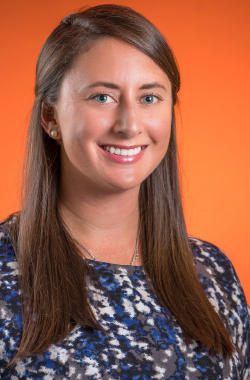When should you start colon cancer screenings?
- Category: Healthy Living, Cancer Care, Digestive Health, Gastroenterology
- Posted On:
- Written By: Dr. Elyse Bevier-Rawls

Years ago, doctors may not have mentioned colorectal cancer prevention until a patient's 50th birthday. But now, both the U.S. Preventative Services Task Force (USPSTF) and the American Cancer Society (ACS) advise people with an average risk for colorectal cancer to begin regular screening at age 45. If you're wondering why, here's what you need to know.
What do the experts recommend?
The American Cancer Society and U.S. Preventive Services Task Force advise people at average risk for colorectal cancer start screening at age 45. This is because of an increase of colorectal cancer in people younger than age 50. How often you need these screening tests depends on which test you have.
Screening for those who are age 45 and of average risk for colorectal cancer includes:
- A colonoscopy every 10 years, or
- A flexible sigmoidoscopy every 5 years (or every 10 years with yearly FIT stool test), or
- A CT colonography (virtual colonoscopy) every 5 years, or
- A fecal occult blood test (FOBT) or fecal immunochemical test (FIT) every year
- A stool DNA test every 1 to 3 years
Regular colorectal cancer screening for those at average risk continues through the age 75 for people in good health and a life expectancy of 10 years or more. For people ages 76 to 85, talk with your healthcare provider about continued screening. Screening for people older than 85 is not advised.
RELATED: What to know about colorectal cancer and colonoscopies
Types of screening tests
Screening tests to find cancer only:
- Stool DNA test. This test looks for DNA changes in cells in the stool that might be signs of cancer. It also looks for hidden blood in stool. For this test, you collect an entire bowel movement. This is done using a special container put in the toilet. The sample is sent to a lab for testing.
- Fecal occult blood test (FOBT) or fecal immunochemical test (FIT). These tests look for hidden or occult blood in the stool. Blood vessels in cancers and sometimes in polyps are easily broken during a bowel movement. This may cause blood to show up in your stool. For these tests, you collect a small amount of your stool with a brush or wooden applicator. Then you smear it on a special card that can find blood. In most cases you need to do this for a few bowel movements in a row. You then send the cards to your provider’s office or to a lab.
Screening tests to find colorectal polyps and cancer:
- Colonoscopy. This test looks at your rectum and your entire colon. It uses a colonoscope, which is a long, lighted tube with a small video camera on the end. The provider inserts the scope into your rectum and up into your colon. The provider looks for polyps or other abnormal areas. These can be removed and sent to a lab for testing. A colonoscopy is the only test that lets the provider see the entire colon and rectum, and remove pieces of any abnormal areas for testing.
- Flexible sigmoidoscopy. This test looks at your rectum and the lower part of your colon. Your healthcare provider inserts a thin, lighted tube with a small video camera on the end into your rectum. The tube is called a sigmoidoscope. He or she looks for polyps or other abnormal areas. These can be removed and sent to a lab for testing.
- Virtual colonoscopy (CT colonography). This test is a special type of CT scan of the colon and rectum. Once the CT images are taken, a computer combines them to create a 3-D picture. This lets the provider look for polyps or cancer.
Talk with your healthcare provider
It's important to know your risk. Talk with your provider about your risk for colorectal cancer, when you should start screening, and which tests might be right for you. Also talk with your health insurance carrier to know which tests are covered by your insurance. Want to know your risk for colorectal cancer? Take this risk assessment.
If you have a test other than a colonoscopy and have an abnormal test result, you will need to have a colonoscopy. This is so that tissue can be taken out and checked for cancer.

Dr. Bevier-Rawls specializes in Colon & Rectal Surgery at Touro. She attended Louisiana State University Medical School and completed her residency at Louisiana State University and is board-certified by the American Board of Surgery.


